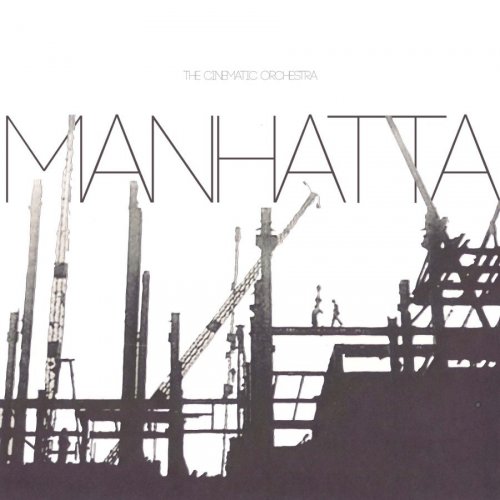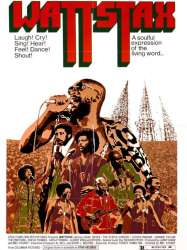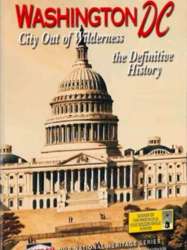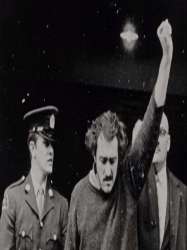Manhatta is a american film of genre Documentary directed by Paul Strand released in USA on 1 january 1921
Manhatta (1921)

If you like this film, let us know!
Released in USA 1 january 1921
Length 10minutes
Directed by Paul Strand
OriginUSA
Genres Documentary
Rating65%










Manhatta (1921) is a short documentary film directed by painter Charles Sheeler and photographer Paul Strand.
Synopsis
Le matin révèle le port de New York, les quais, le pont de Brooklyn. Un ferry-boat accoste, dégorgeant sa masse entassée. Les gens se déplacent rapidement le long de Wall Street ou se promènent plus langoureusement dans un cimetière. Des rangées de gratte-ciel dégagent des colonnes de fumée et de vapeur. En pleine vue. Ou encadré, comme à travers une balustrade. Une grue favorise l'ascension de la ville, tandis qu'un ferronnier se tient en équilibre sur une poutre haute. Une locomotive dans une gare de triage se prépare à partir, tandis qu'un paquebot qui arrive se bouscule avec des remorqueurs attentifs. La lumière du soleil qui s'estompe se reflète dans les eaux du port. L'imagerie est entrecoupée de citations de Walt Whitman, qui n'a pas de nom.Comments
Leave comment :
Suggestions of similar film to Manhatta
There are 1 films with the same director, 8969 with the same cinematographic genres, 373 films with the same themes, to have finally 70 suggestions of similar films.If you liked Manhatta, you will probably like those similar films :

Native Land (1942)
, 1h20Directed by Paul Strand
Origin USA
Genres Drama, Documentary, Historical
Themes Politique, Films about the labor movement, Documentary films about politics, Political films
Actors Paul Robeson, Robert Strauss, Houseley Stevenson, Howard Da Silva, Art Smith, John Marley
Rating62%





Face aux violences de la police et des milices privées au service du patronat, dans l'Amérique des années 1930, des travailleurs luttent, parfois au péril de leur vie, afin de préserver les libertés civiques.
 , 1h40
, 1h40Directed by Antoine de Maximy
Origin France
Genres Documentary
Themes Documentary films about cities, Documentaire de voyage
Actors Antoine de Maximy
Rating72%





Antoine de Maximy part découvrir les États-Unis : ses grandes routes, ses paysages, ses mythes, ses grandes villes, ses communautés, ses stars hollywoodiennes mais également ses anonymes.

Complexo: Parallel Universe (2011)
, 1h20Origin Portugal
Genres Documentary
Themes Documentary films about cities
Rating65%






Trumbo (2007)
, 1h36Directed by Peter Askin
Origin USA
Genres Documentary, Historical
Themes Films about writers, Documentary films about business, Documentary films about the film industry, Documentary films about historical events, Documentaire sur une personnalité, Documentary films about cities, Political films
Actors Dalton Trumbo, Joan Allen, Michael Douglas, Liam Neeson, Paul Giamatti, Josh Lucas
Rating73%





En se concentrant sur la vie de Dalton Trumbo (1905-1976), ce film examine les effets sur les individus et les familles de la poursuite par le Congrès des communistes d'Hollywood après la Seconde Guerre mondiale. Trumbo était l'un des nombreux écrivains, réalisateurs et acteurs qui ont invoqué le premier amendement en refusant de répondre aux questions sous serment. Ils ont été mis sur la liste noire et emprisonnés. Nous suivons Trumbo en prison, en exil au Mexique avec sa famille, dans la pauvreté, dans le rejet public de ses enfants, dans ses écrits sous d'autres noms, et dans une éventuelle mais incomplète réhabilitation. Des acteurs lisent ses lettres ; ses enfants et ses amis se souviennent et commentent. Des photos d'archives, des films d'actualités et des interviews ajoutent de la texture.

Of Time and the City (2008)
, 1h12Directed by Terence Davies
Origin United-kingdom
Genres Documentary, Historical
Themes Documentary films about business, Documentary films about the film industry, Documentaire sur une personnalité, Documentary films about cities, Autobiographical documentary films
Actors Terence Davies
Rating71%





La ville de Liverpool dans les années 50 et 60.

Wattstax (1973)
, 1h38Directed by Mel Stuart
Origin USA
Genres Musical theatre, Documentary, Musical
Themes Films about music and musicians, Documentary films about music and musicians, Documentaire sur une personnalité, Documentary films about cities, Musical films
Actors Richard Pryor, Melvin Van Peebles, Isaac Hayes, Ted Lange, Erik Kilpatrick
Rating75%





Le Woodstock noir, concert d'anthologie donné en août 1972 au Watts Stadium de Los Angeles à la mémoire des émeutes noires de 1965 avec Isaac Hayes, Albert Kint, the Barkays, Little Milton, Rufus Thomas.

Fog City Mavericks (2007)
Origin USA
Genres Documentary
Themes Documentary films about business, Documentary films about the film industry, Documentary films about cities
Actors Francis Ford Coppola, Miloš Forman, John Lasseter, George Lucas, Steven Spielberg, Frank Darabont
Rating74%






City Out of Wilderness (1974)
, 28minutesOrigin USA
Genres Documentary
Themes Documentary films about historical events, Documentary films about cities
Rating24%





 , 58minutes
, 58minutesDirected by Robin Spry
Origin Canada
Genres Documentary
Themes Films about terrorism, Documentary films about law, Documentary films about war, Documentary films about historical events, Documentary films about politics, Documentary films about terrorism, Documentary films about cities, Political films, Documentary films about Quebec politics

Sea Point Days (2008)
, 1h36Origin South africa
Genres Documentary
Themes Films set in Africa, Films about racism, Documentary films about racism, Documentary films about law, Documentaire sur une personnalité, Documentary films about politics, Documentary films about cities, Political films
Rating68%





Alongside the southernmost urban centre in Africa, separating city from ocean, lays a very special strip of land. Set against the beautiful backdrop of the Atlantic Ocean on one side and Signal Hill on the other, the Sea Point Promenade – and the public swimming pools in its centre – forms a space unlike any in Cape Town. Once a bastion of Apartheid exclusivity, it is nowadays unique in its apparently easy mix of age, race, gender, religion, wealth status and sexual orientation. Somehow this space has become one where all South Africans feel they have a right to exist, and where the possibility of happiness in a divided world doesn't seem unfeasible. But what is the reality of those coming here? How do people see their past, their present in this space and their future in this country?
 Connection
Connection